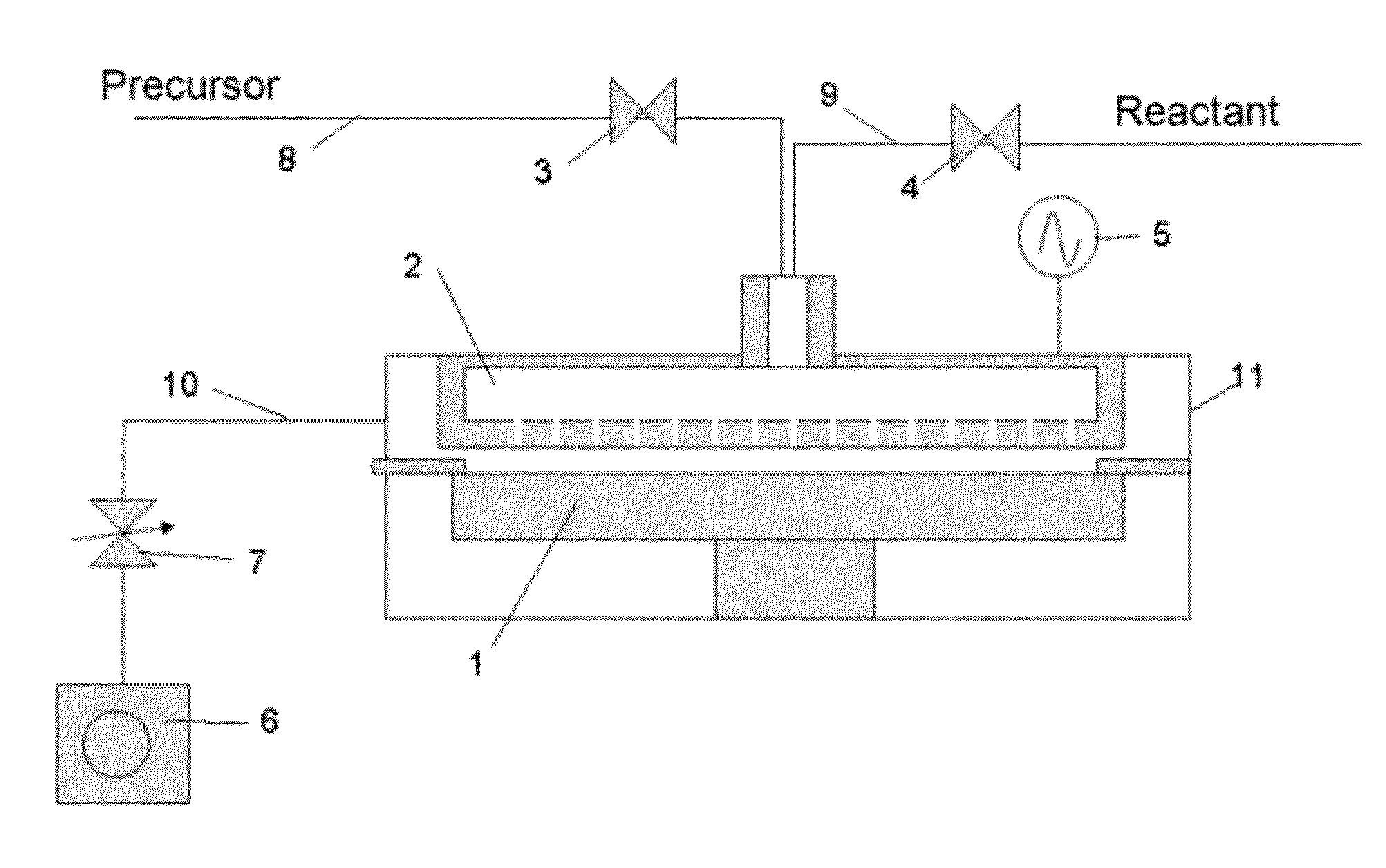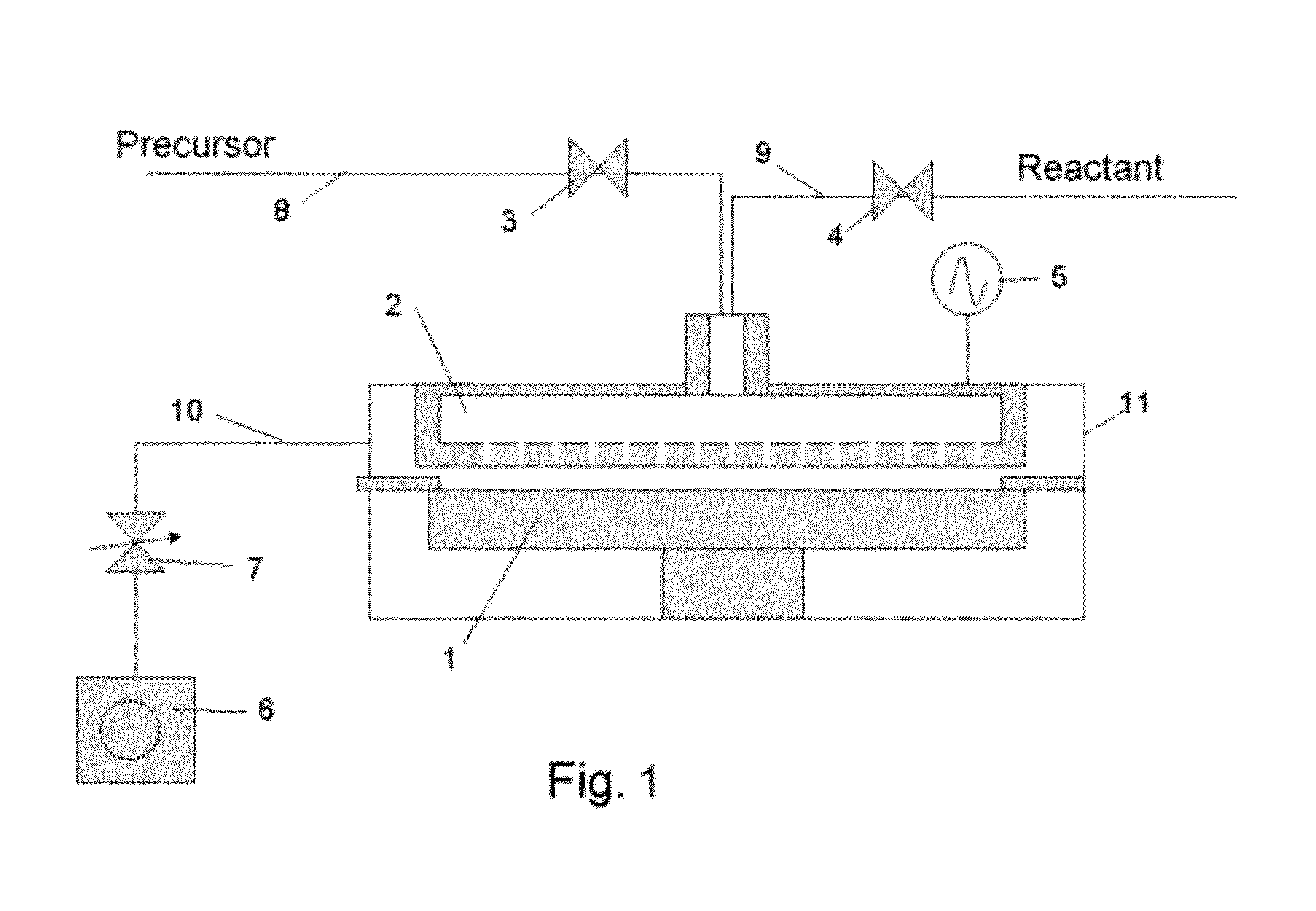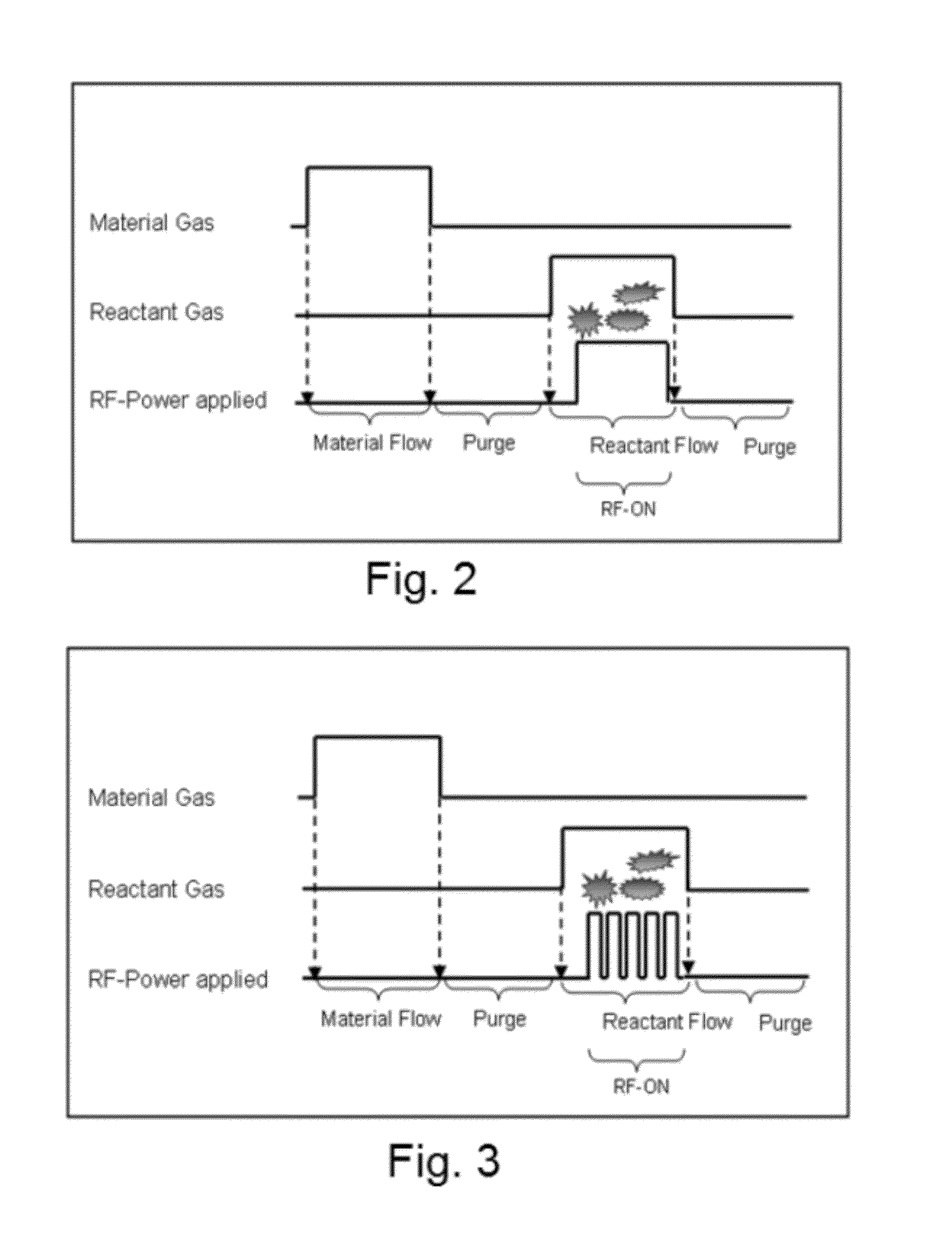Method of depositing film by atomic layer deposition with pulse-time-modulated plasma
- Summary
- Abstract
- Description
- Claims
- Application Information
AI Technical Summary
Benefits of technology
Problems solved by technology
Method used
Image
Examples
example 1
[0048]In this example, the apparatus shown in the schematic diagram of FIG. 1 was used to form a film. This apparatus comprises a reactor 11 which can be retained in a vacuum state, susceptor 1 with heating mechanism used to hold a single wafer on top, shower head 2 which provides a mechanism for supplying gas, RF application mechanism 5 that generates a pulse-time-modulated plasma between the shower head and susceptor, precursor gas supply line 8 equipped with an open / close valve 3 connected to the shower head 2, reactant gas supply line 9 equipped with another open / close valve 4, exhaust line 10 used to exhaust the atmosphere inside the reactor 11, and vacuum pump 6 connected after the exhaust line via a pressure control valve 7, among others. Note that a purge gas line (not illustrated) is also connected to the shower head 2 just like the reactant gas supply line 9.
[0049]A Si wafer (300 mm in diameter) was heated to 70° C., and then N,N,N′,N′-tetraethylsilanediamine (SAM24) being...
PUM
| Property | Measurement | Unit |
|---|---|---|
| Fraction | aaaaa | aaaaa |
| Fraction | aaaaa | aaaaa |
| Time | aaaaa | aaaaa |
Abstract
Description
Claims
Application Information
 Login to View More
Login to View More - R&D
- Intellectual Property
- Life Sciences
- Materials
- Tech Scout
- Unparalleled Data Quality
- Higher Quality Content
- 60% Fewer Hallucinations
Browse by: Latest US Patents, China's latest patents, Technical Efficacy Thesaurus, Application Domain, Technology Topic, Popular Technical Reports.
© 2025 PatSnap. All rights reserved.Legal|Privacy policy|Modern Slavery Act Transparency Statement|Sitemap|About US| Contact US: help@patsnap.com



